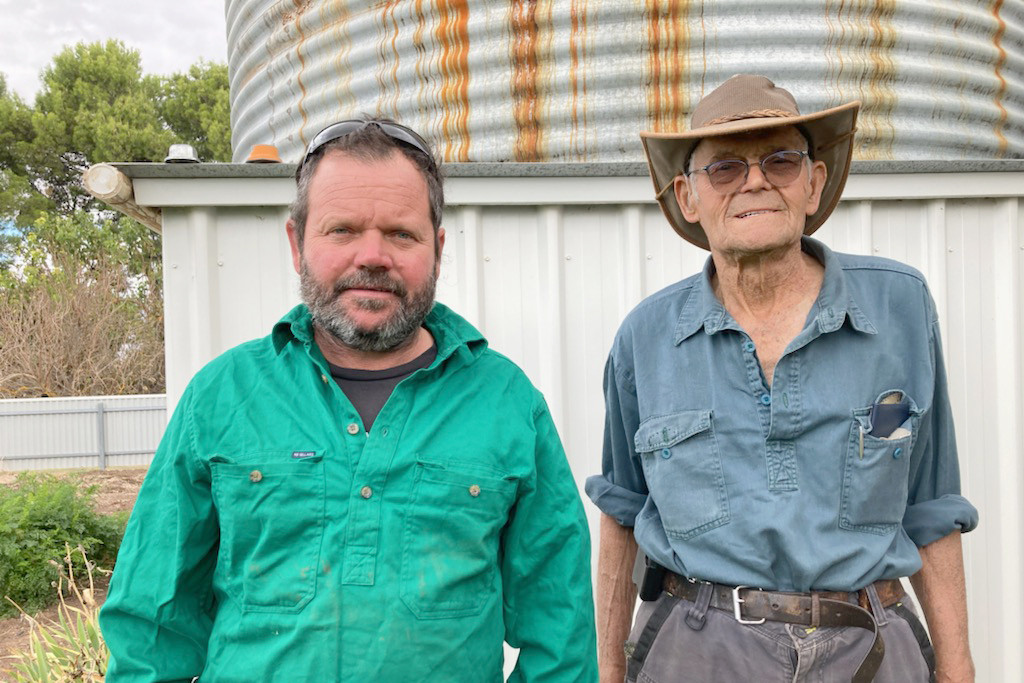General News
27 April, 2024
Farmer disappointed by dingo protection
Terry Miller will admit he has a certain level of respect for dingoes, but he's calling for common sense to prevail to allow farm owners to control the animals.

Terry Miller will admit he has a certain level of respect for dingoes, but he's calling for common sense to prevail to allow farm owners to control the animals.
Often, Mr Miller said, livestock were left partially eaten and mauled, but alive, to suffer a cruel and extended death, and that he has been forced to trap dingoes on his property north-west of Nhill to protect his animals and his land.
Mr Miller said he doesn't wish any harm to dingoes in the deep desert - only those that encroach into his paddocks in search of water, but inevitably turn to attacking sheep.
Recently, Mr Miller had to move livestock to another paddock - he hoped to safety - as his ewes were only days from lambing.
"They were watering out of the same troughs as the dogs," he said.
Mr Miller shared his thoughts as Member for Mildura Jade Benham voiced her disapproval of the continuation of dingo protection in the region.
Ms Benham said hundreds of farmers suffered livestock losses each year.
“I've been out to farms and found carcass after carcass left to rot after the dogs have been in,” Ms Benham said.
Mr Miller, 83, has been culling for decades in a bid to keep his flock safe.
"In 1911 my father was in charge of sheep in the Big Desert, up along the border, and he learned to trap dogs because of their habit of eating sheep," he said.
"In 1954 he taught me to trap - I've been controlling dogs for just on 70 years now."
Mr Miller said in his experience dingoes didn't kill sheep - but rather, just ate them.
"They go in generally around an area of bare skin, eat a kilogram or two of meat, and often, most of the time, they leave it still alive,” he said.
“By the time the cocky finds it it's dead from lack of organs or shock."
"They'll make a fair mess for the first attacks - there will be a dead sheep, or two, three, and a lot mauled - but after they've done this for a while they become aware of the fact if you harass a sheep it will sulk and sit.
“Often after the first horrible mess they make, they harass a sheep until it surrenders."
He said a press release he had seen stated there were only 40 dogs left in the desert.
"I don't know how they came to that tally," he said.
"However, 40 might be capacity for that desert, because by the time February, March and April come around there's little precious water left in that desert.
"In that period, dogs come out looking for water (and) come into contact with stock.
"Not all of them detect stock immediately, but every dog will eventually kill stock."
Options like fencing, he said, were a cost farmers couldn't render.
Mr Miller said fencing dingoes away from agricultural water could force them to range further into settled areas, ultimately coming into contact with domestic dogs that he said could ruin the pure gene pool.
Dingo attacks have been rampant on Mr Miller's farm and those of his neighbours in the past month.
"The day after it (the rule) came in, my neighbour had a couple of sheep eaten and 10 mauled," Mr Miller said.
"He's had at least two more attacks since then and he's not allowed to do anything about it.
"His neighbour on the other side reported between eight and 10 sheep dead and 20 mauled.
"That problem could be solved within a week, probably within a couple of days, were we allowed, but instead we have to let them just keep coming."